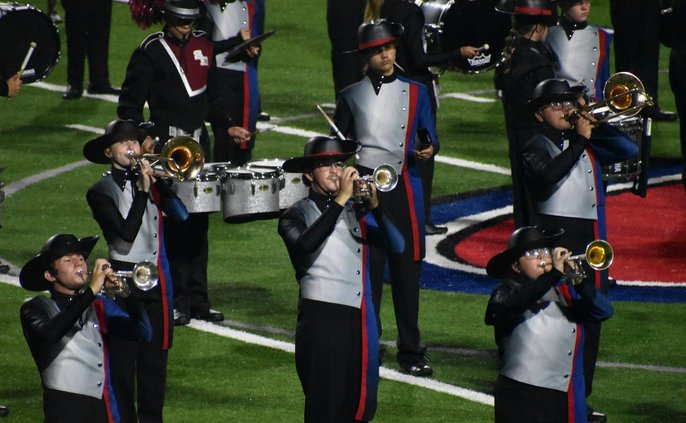The spirit of bipartisanship may be sinking in the Congress, but that doesn’t mean some lawmakers aren’t trying to bail the water out, according to Rep. John Barrow.
Barrow, a Savannah Democrat whose 12th District includes Effingham County, said he and like-minded “Blue Dog” Democrats are trying to reach across the aisle when possible.
“Everything you read, hear and see on TV about Congress being a bitterly divided, partisan, tore-up place … is true,” he said at the Effingham Rotary Club on Thursday. “Not much has changed by the change in management up there. I wish there was something we could do about it.”
Barrow said he and fellow Georgia Democrats Jim Marshall (D-Macon) and Sanford Bishop (D-Albany), Allen Boyd of Florida, Bob Etheridge and Mike McIntyre of North Carolina and John Tanner of Tennessee are trying to change the tone as much as they can.
To Barrow, a good measure of bipartisan spirit is how often a lawmaker votes against the majority of his own party. Barrow said he has crossed the party line to vote with Republicans more than any other Democrat except for one, Gene Taylor of Mississippi.
“I’m trying real hard to change that tone, but it’s an uphill struggle,” he said.
Despite the rancorous atmosphere, Barrow said the current Congress has gotten a fair amount of work done, with approximately 70 substantive bills having been passed in the last nine months.
“Seventy percent of them have had broad bipartisan support,” he said. “That’s something I’m proud of. That’s in large part of the work of people like me and Jim Marshall.”
There are 47 Blue Dog — also once known as Boll Weevil — Democrats in their caucus, which means they hold a sizable chunk in the 232-member majority.
“There is no Democratic majority that is Blue Dog proof,” Barrow said. “If something is going to pass with just Democratic votes, it’s going to have to be bipartisan in effect, if not bipartisan in fact.”
Three issues that have gone through Congress with backing from both parties, expanding student loans, veterans health care and children’s health insurance, show a change in priorities and also have been done without new taxes.
Congress repealed an increase on student loans that raised the base points and replaced it with a scheduled reduction that will cut the base points in half. Congress also is adding to the Pell grant program by 33 percent over its previous level of funding.
“It is the largest infusion of federal support for higher education since the GI Bill,” Barrow said. “People who are borrowing their way through school, who are literally mortgaging their future to become more valuable in the marketplace in a lifetime’s productivity, they are going to get more help than they got from the last Congress because there is a change in emphasis.”
Coupled with $1 billion in supplemental funding, Congress’ inclusion of another $3.5 billion in the general appropriations represents a significant amount spent on veterans’ health care, according to Barrow
“In this one year alone, we are spending more money on veterans’ health care than in any year in the entire 77-year history of the (Veterans Administration),” he said.
“That’s not going to close the gap between what folks have been promised and what they’ve been getting. But it’s going to take care of the 219,000 veterans that are coming online in the next year. That’s a step in the right direction.”
Congress also has broadened the reach of the state children health insurance programs, known as PeachCare in Georgia. Nationally, the SCHIPs have covered 6 million kids who were uninsured or underinsured. There are more than 260,000 on the PeachCare rolls in Georgia.
“This is a plan that Bill Clinton and Newt Gingrich could get together on back when they were running the country in 1997,” Barrow said. “If they can’t afford insurance for themselves, at least they can help them get it for their children.”
Georgia’s plan was in a crunch earlier this year, causing the General Assembly to take a two-week hiatus while waiting on the federal government to fill in the shortfall.
“For the last five or six years, states like Georgia have been in a fix,” Barrow said. “States like Georgia were being penalized for doing a good job covering their kids, while states like Texas were rewarded for doing a lousy job.
“We were giving money to states who were not insuring their kids in the hopes of incentivizing the states to do something. States like Georgia that were matching the federal grant with their money and eager to do more, the federal spigot was running dry in the middle of the year. That’s been a chronicle problem for five or six years.”
In addition to correcting the federal funding formula for PeachCare, Congress also included 5 million children who were eligible to be covered by SCHIP but were not. The funding for the additional children is coming through a cigarette tax and a closed tax loophole.
“Bottom line is, we’re going to cover all 11 million kids in the country who are eligible,” Barrow said. “That is a huge step in the right direction. That is extending care to those who need it the most and deserve it the most.”
The spending for student loans, veterans and children’s health insurance isn’t coming at the cost of a general tax increase, Barrow said.
“Every one of the things we have talked about is paid for by either closing some loophole or finding some other program to kill off or snuff out in order to pay for this, so we don’t have to increase deficit spending,” he said. “That is a direct result of the Blue Dogs coalition’s primary mission in life, which is to bring some fiscal sanity back to the federal government again.”








